Coronavirus: Will lockdown change the way we shop forever?
- Published
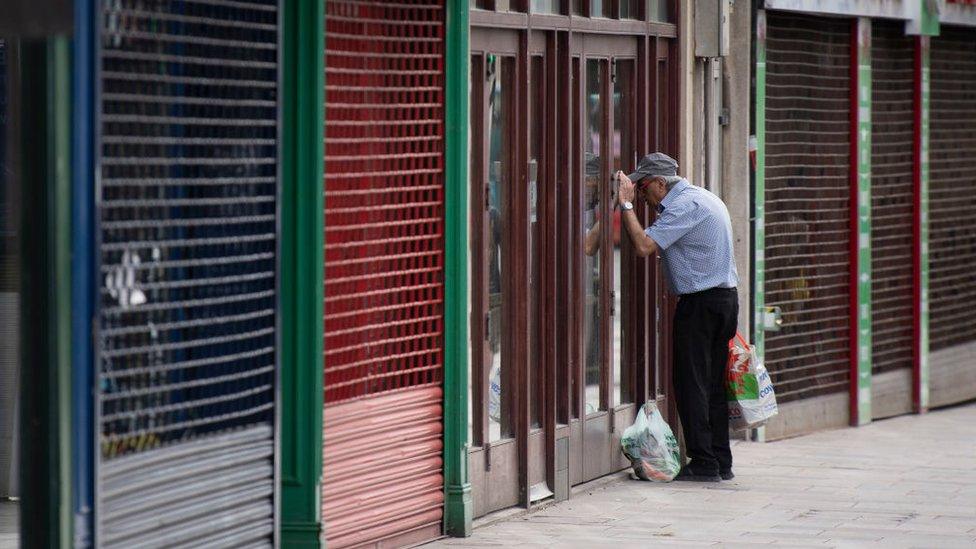
People are returning to independent traders who have struggled to compete in recent years
A global pandemic and unprecedented restrictions may not sound like a recipe for business success.
But for some independent traders in Wales, it is proving just that.
Limits on travel, a scarcity of delivery slots and queues to enter supermarkets have seen people return to independent traders who have struggled to compete in recent years.
And some businesses are cautiously optimistic that people's buying habits may have changed for good.
At Talgarth Mill, a working Georgian watermill in the Brecon Beacons, lockdown has seen its business boom.
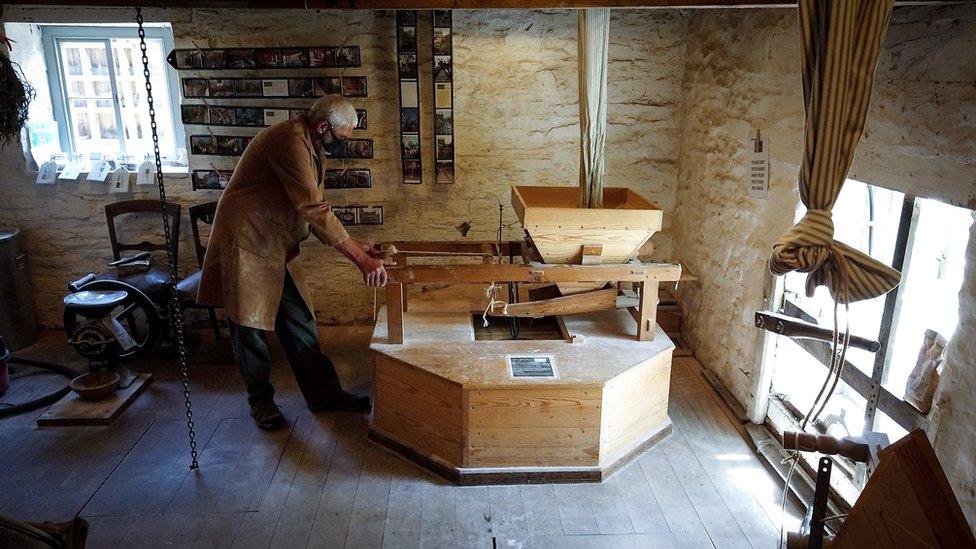
The pandemic initially led to some sleepless nights for Talgarth Mill's custodians, but business boomed
When restrictions came into force in March, its café and visitor centre had to close.
At first it meant some sleepless nights for its custodians, who tread a fine line between profit and loss.
But rather than face the fate of many businesses who have gone under, it was met with an almost unmeetable surge in sales as people took up baking as a way to the pass the time.
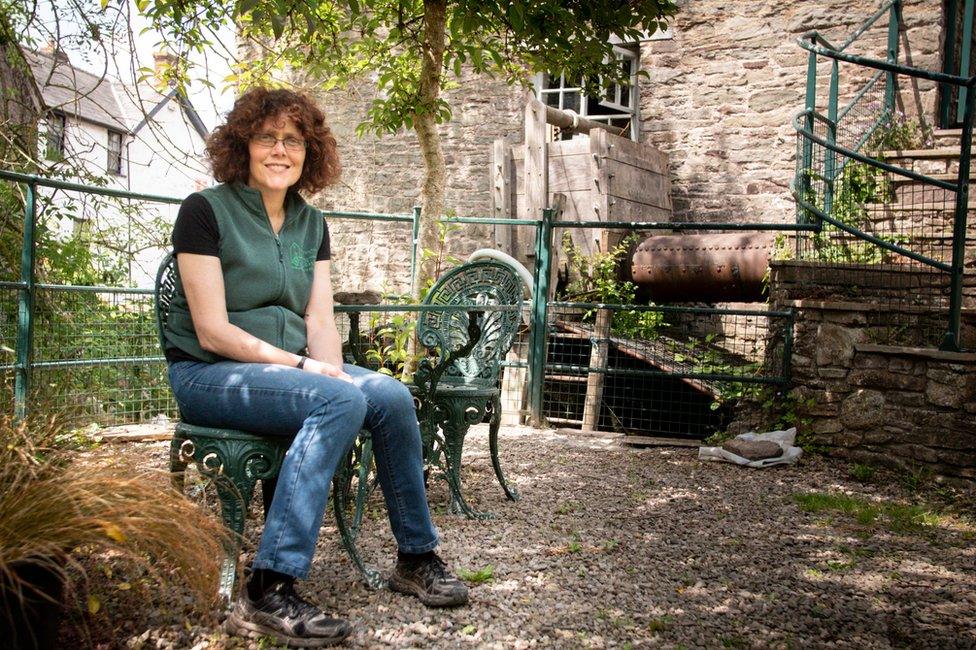
Sarah Andrews, a miller at Talgarth Mill, says the business was doing very well out of lockdown
"A typical order in the past from a retailer would have been six or 10 of each of the product lines, and orders would come in every four to six weeks," explained miller Sarah Andrews.
"Now it's 40 or 60 of something and they're ordering every one or two weeks.
"I don't think we're sitting here thinking 'gosh, I wish lockdown was over and everything would just go back to the way it was'."
It is a story Mark Woodman is familiar with.
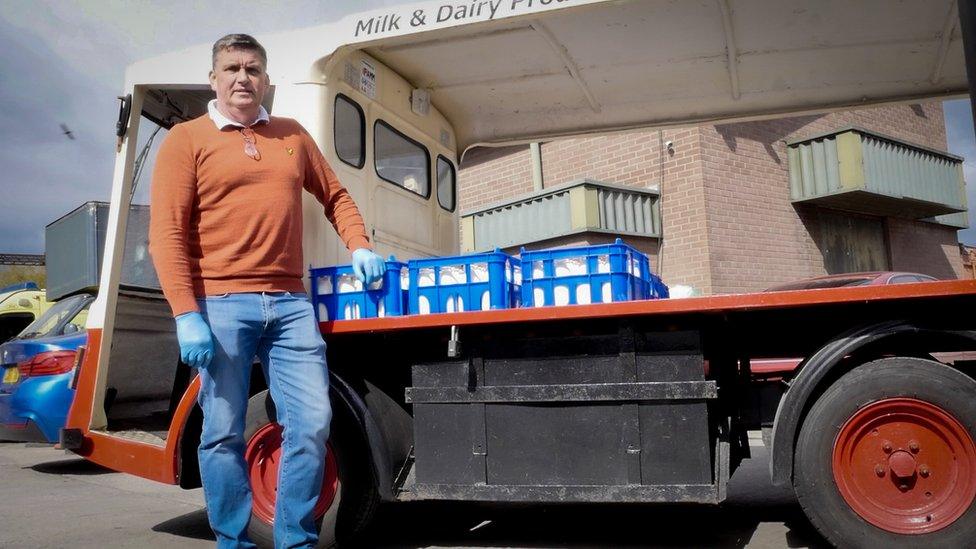
Milkman Mark Woodman says he has had to turn business away because he could not fulfil the number of orders he had received
Mr Woodman is a milkman who has been delivering to the doorsteps of Cardiff for more than 20 years.
As his commercial business dried up almost overnight, he saw domestic orders surge to the point where he has had to turn away business.
"We've been inundated with calls," he said.
"One-hundred, 150 calls a day, to the point where I'm answering the phone and emails 14 hours a day."
Changing habits
Boom time it may be for some, but even the most optimistic of businesspeople are aware these are uncertain times and habits take more than a few weeks to form.
There has been an almost complete drop-off in high street trade as customers shop online, research by the Office for National Statistics has shown.
But for businesses which have been able to stay open, there has been a newly engaged customer base, buoyed, in part, by the steep rise in home-working.
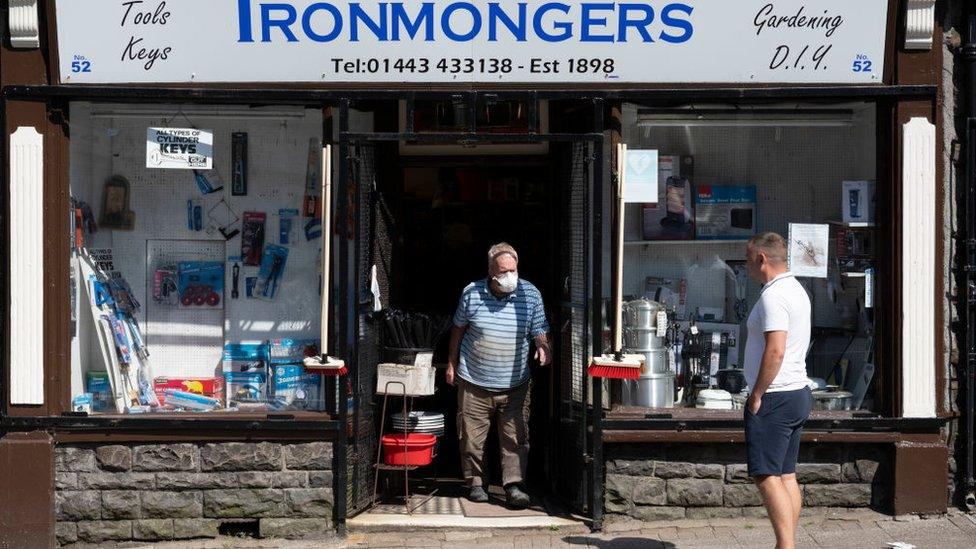
Independent business which innovate and adapt stand the best chance of surviving, a trade association says
It is a trend that may just re-write the rulebook in terms of how and where we shop, according to Andrew Goodacre from the British Independent Retailers Association (Bira).
"I think now we're seeing a resurgence in appreciation of locality and local support," he said.
"I've no doubt that the fact that many more people are working from home as a result of Covid-19 has influenced where they shop.
"It's easier nipping to the local shop, and they're not doing it in the city centre or the town centre where the office might be based."
Old business, new ways
Many business owners have turned their focus away from their core business in order to stay afloat, or have moved to new ways of working, such as home-delivery services.
Some believe this innovation will reshape the way businesses move forward once people begin to return to work.
"We've all adapted and become flexible," Ms Andrews explained.
"We've looked at things like deliveries and collections, so maybe we have to continue with things like that."
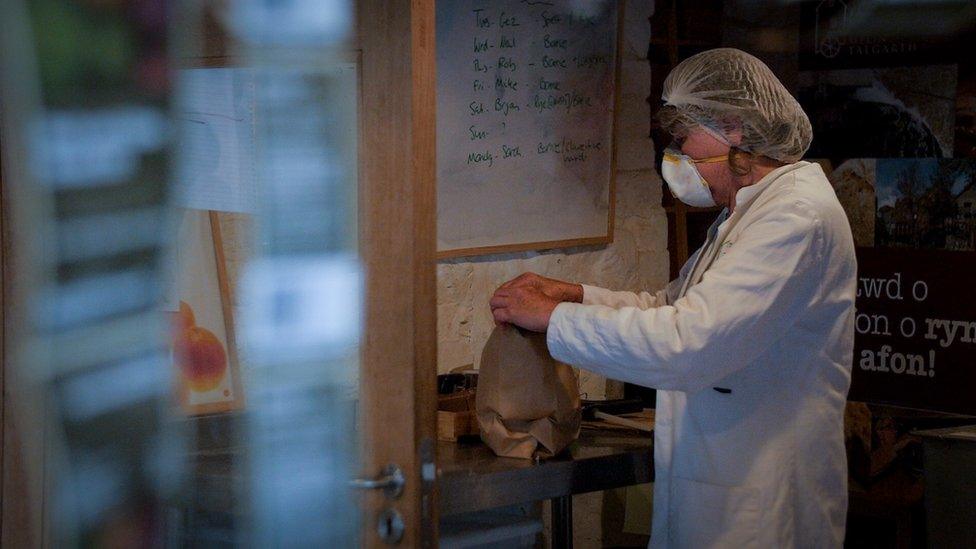
Talgarth Mill is learning new ways of doing business in lockdown
It's a view with which many in other sectors agree.
"I think what local retailers have done is adopted new technology, better and smarter, and they've got a stronger digital footprint as they've engaged with their communities," Mr Goodacre said.
"That will enable them to compete effectively in the future."
Mr Goodacre said businesses that adapt most quickly to changing behaviours are most likely to survive.
On Friday, First Minister Mark Drakeford said all non-essential shops could reopen with social distancing measure in place from Monday.
But travel guidance which advise people to travel no further than five miles (8km) will not be lifted earlier than 6 July, he added, meaning businesses could continue to struggle.
Can there be a happy ending?
Unfortunately, for many the answer to that will be no.
With the UK's economy shrinking by an unprecedented 20.4% in April - the largest monthly contraction on record - and predictions placing the country among the largest slumps of any major economy in 2020, the challenge businesses face is stark.
But for those who do survive, there may be new opportunities for the independent traders who have traditionally formed the backbone of their high street.
"I think one of the key things will be how people's patterns of buying things have changed," Ms Andrews added.
"I think everyone is thinking the new world won't just be going backwards. It will be carrying some of these new things with us as well.
"A lot of people are saying, actually, there's some things I really like about this new world and I would like to see them continue."
- Published14 June 2020
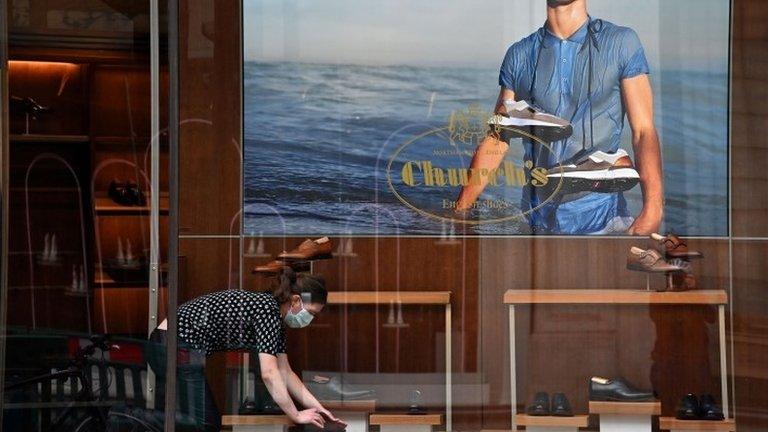
- Published16 April 2020
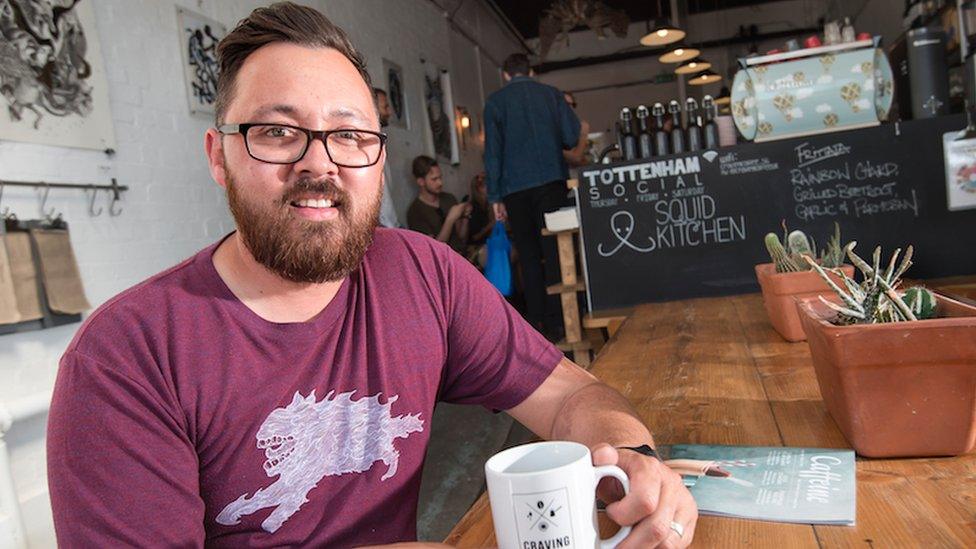
- Published1 June 2020
